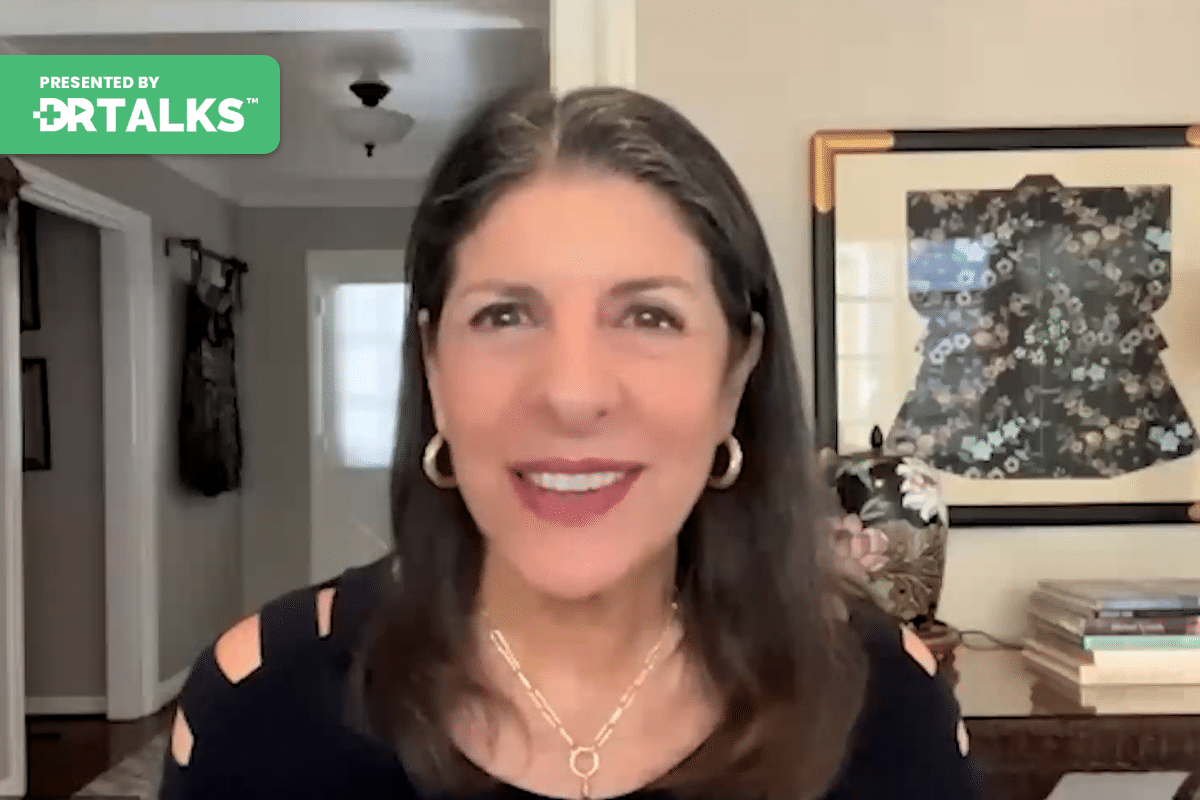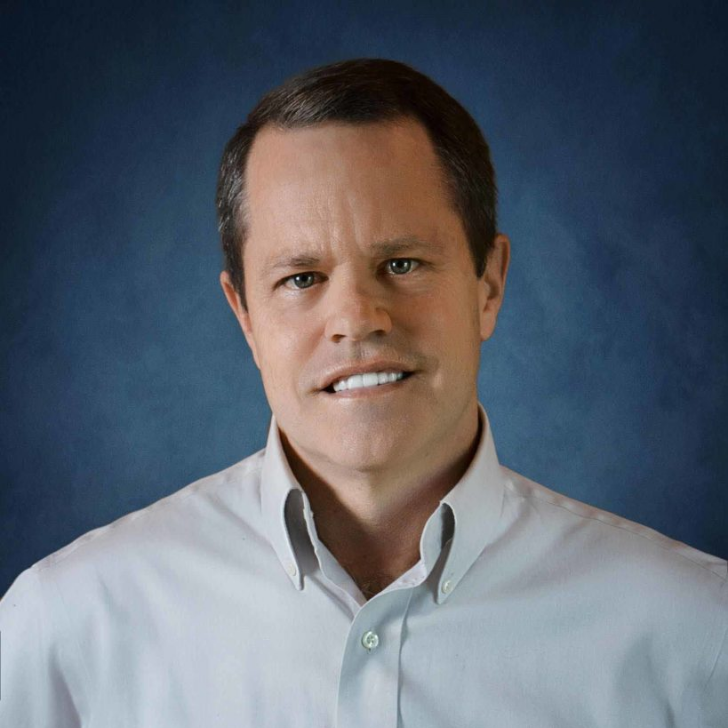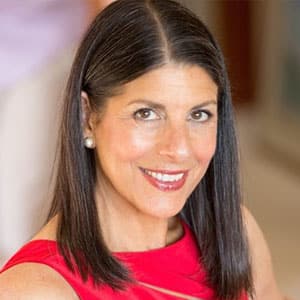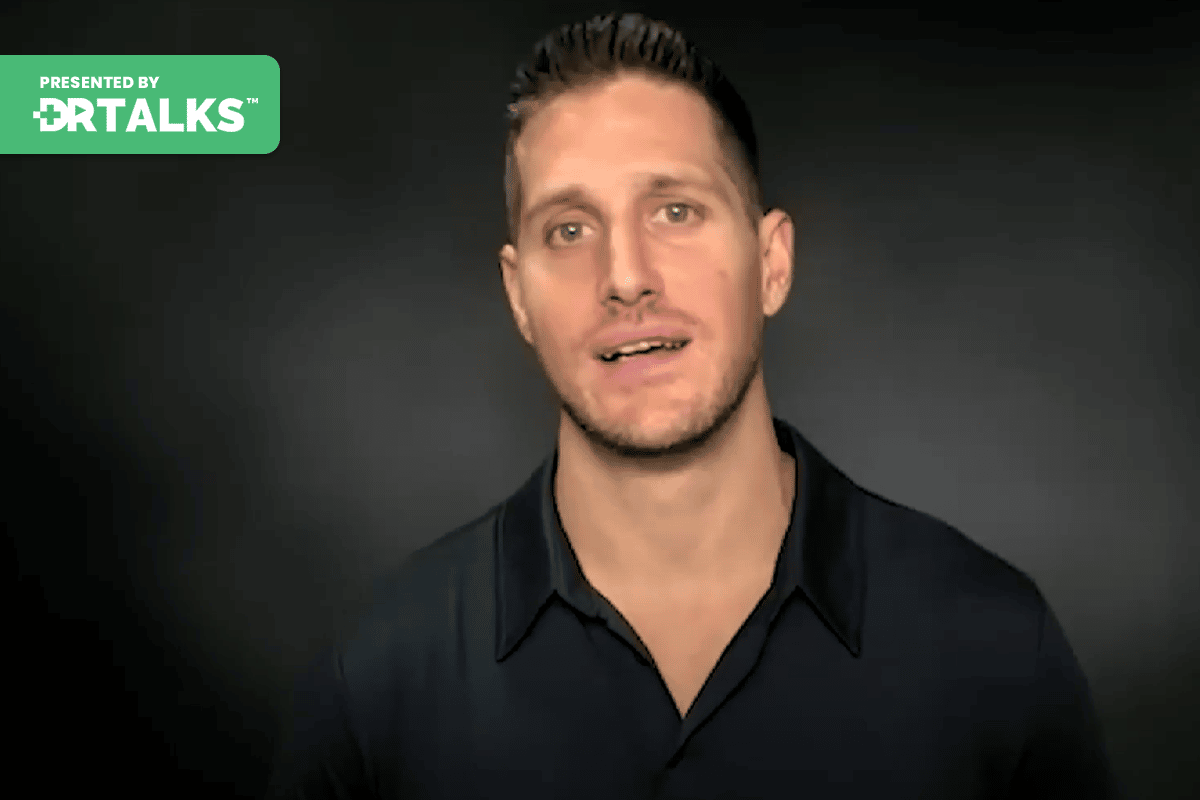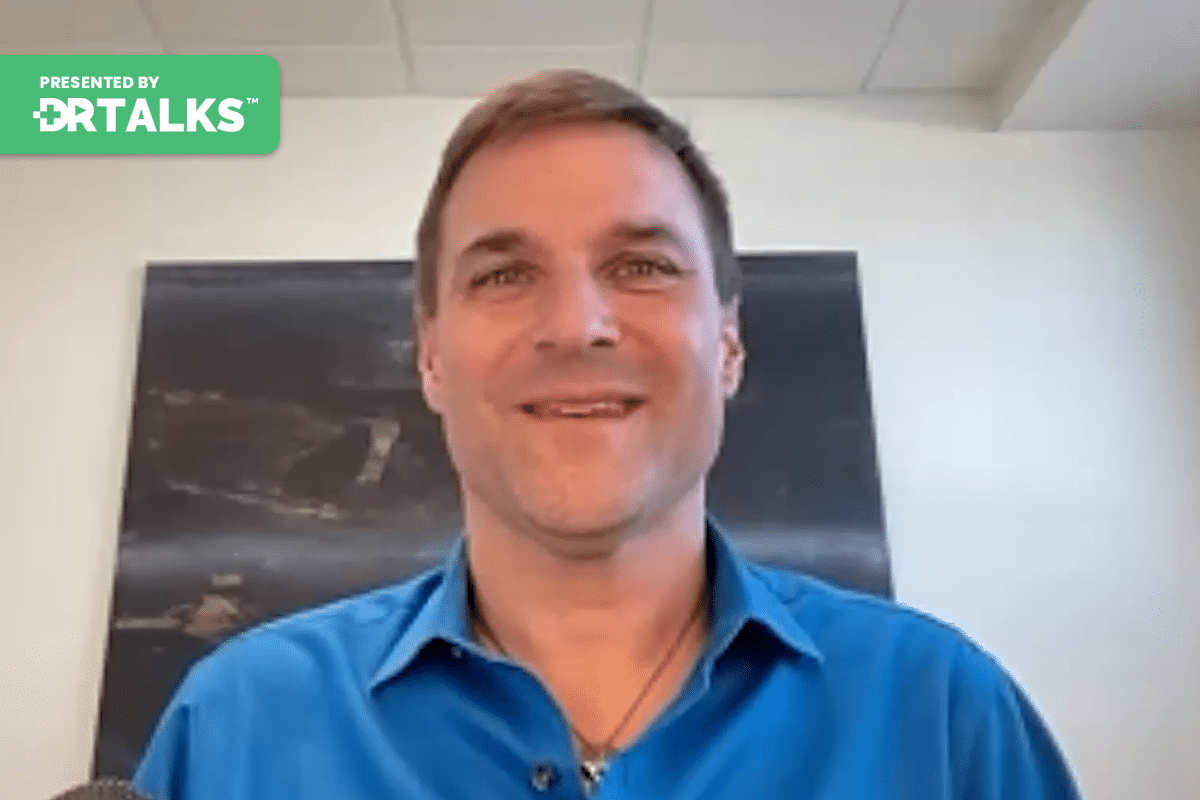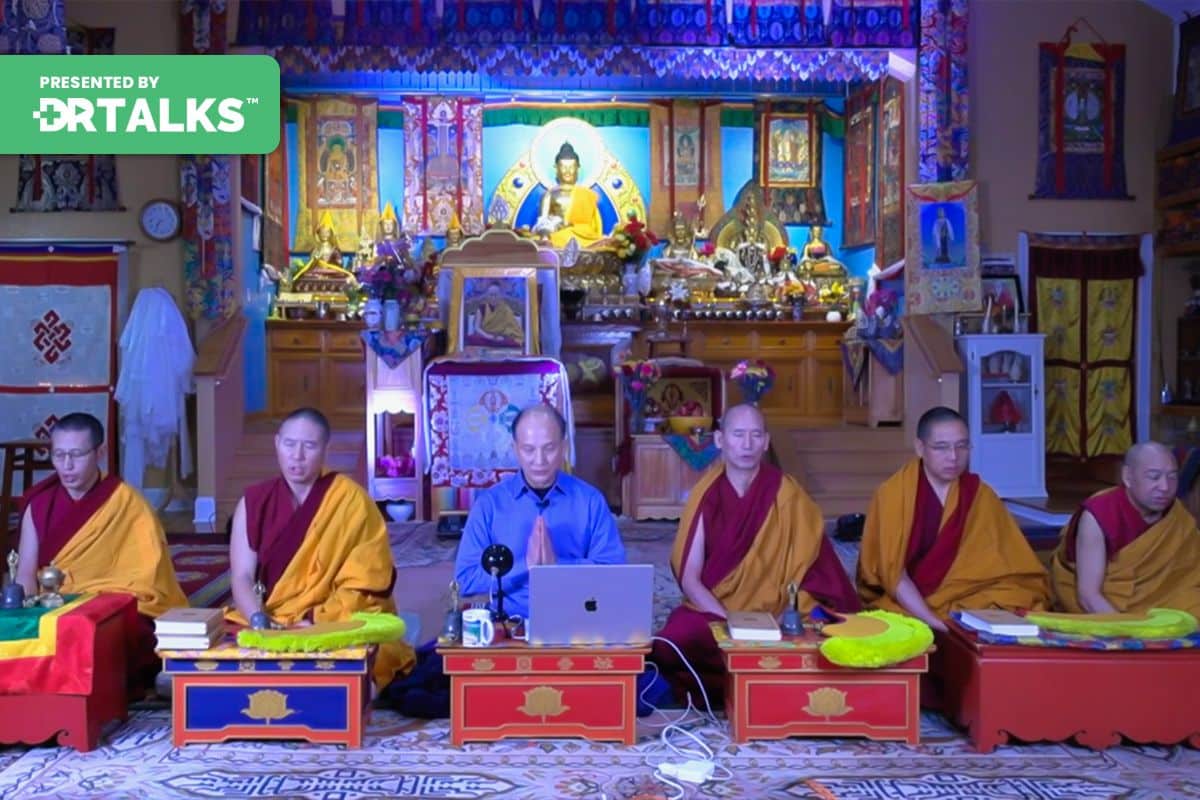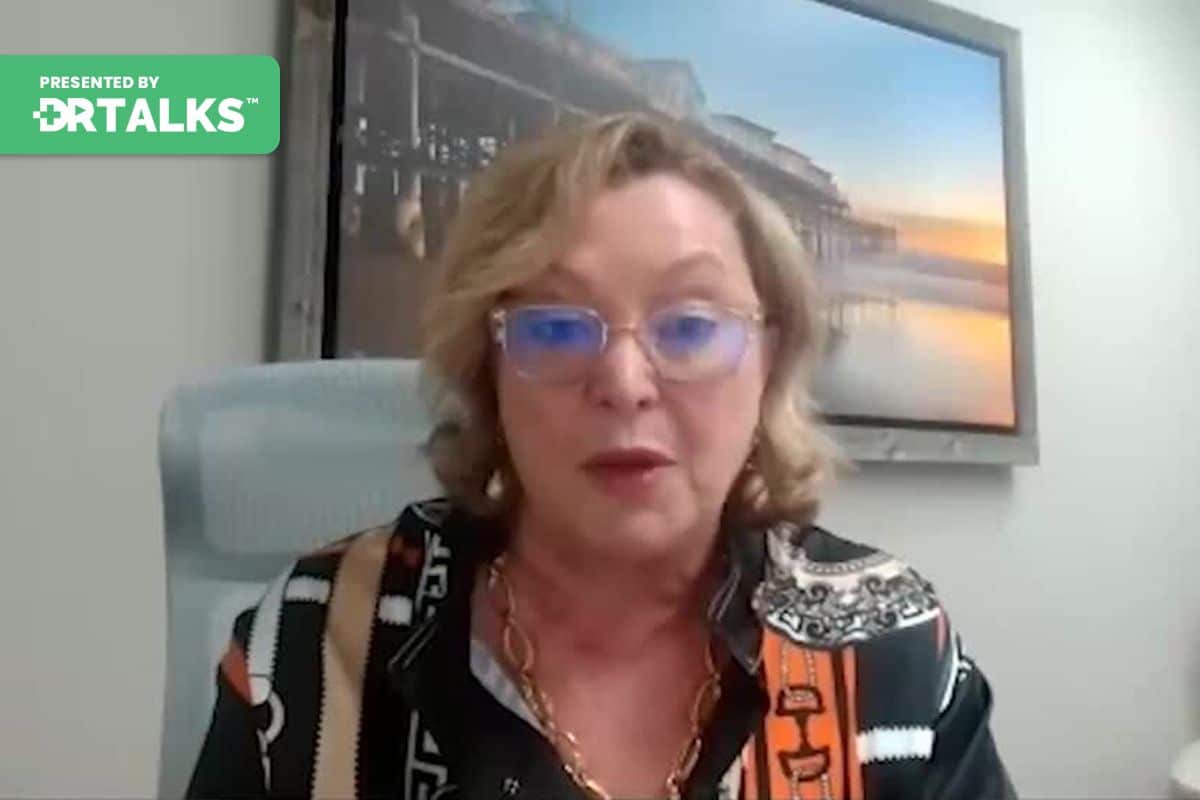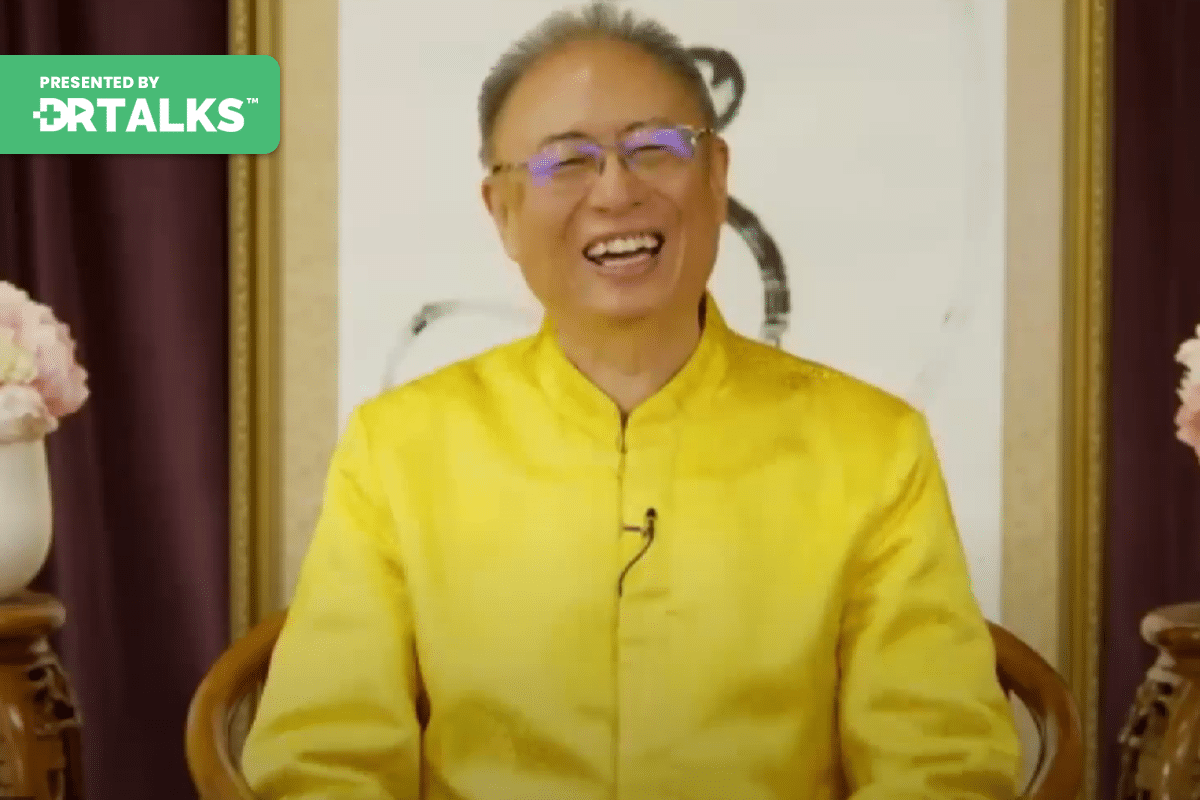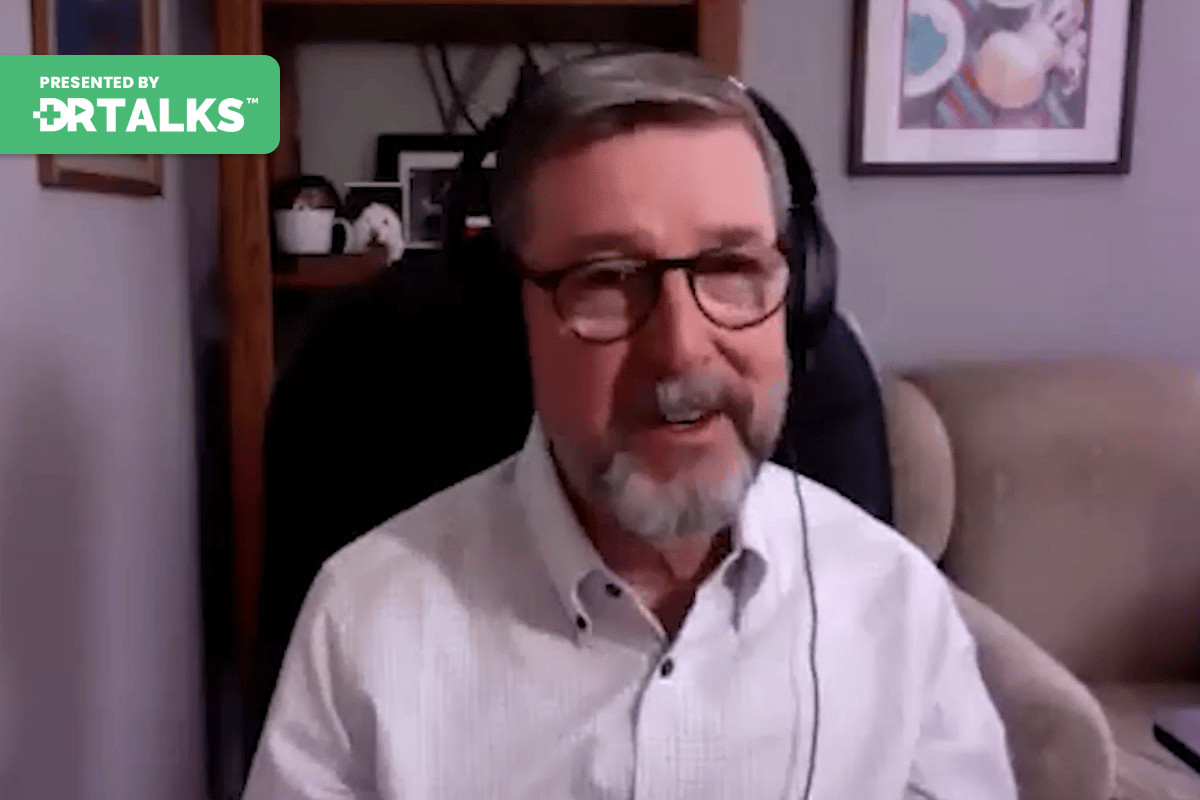Join the discussion below
- The main cause of brain fog and memory loss and how to eliminate it
- The types of exercise that slow the aging of your body and give you the vitality of a 20-year-old—in your 50’s, 60’s, and beyond
- What science says is rapidly aging our skin more than sun exposure (and we all do this unknowingly every day)
- How to get the deepest, most age-defying sleep ever
- Breath practice to release anxiety and clear our brain in under a minute
Tom McCarthy
I am so excited to introduce our next guest. She is somebody that I just met even though we’ve been in a group together for a long time. We didn’t, we didn’t either, I wasn’t going to the meetings or she wasn’t when I was going. So we just met a couple of weeks ago down in Mexico and I was just blown away by her energy. She’s got this infectious energy and, and smile and positivity. And so I said, I got to know who this lady is and We spent some time talking and found out her name is Debra Poneman but found out that she, in her early life learned to meditate. She was actually a teacher of meditation, transcendental meditation. And how old were you, 19 years old or something like that.
Debra Poneman
Yeah. I went to teacher training when I was 19.
Tom McCarthy
19 amazing learning to meditate it at such a young age. Yeah.
Debra Poneman
And we can now people could calculate how old I am because I’ve been a meditation teacher.
Tom McCarthy
Oh, okay. Yeah. Well she’s 71. Give away the surprise. But you’re gonna, you’re gonna realize why we have her on here because she has of course called ageless for many years. She had of course and still has a course called Yes to success. But more recently because she looks like she’s about 25 just bouncing off the walls. Energy. I mean super positive fun energy to be around. She’s got this course, which she did with another expert right? Created with another expert on aging and it’s called ageless. She is a mom. She even took time away from her business, to raise her Children. She wanted to be a mom. She did a phenomenal job, has incredible Children. And she’s here today with us and the talk title today I’m excited about is called The Five Secrets to slowing stopping and reversing aging of the brain and the body Debra, welcome to our summit.
Debra Poneman
That was the best introduction to anyone has ever given me.
Tom McCarthy
You’re being too nice. Come on now.
Debra Poneman
Yeah, I have to say I felt the same way about you when I met you at our meeting down in Puerto Vallarta. I thought this is a guy I could be BFFs with
Tom McCarthy
Awesome. Yeah, I’m so happy we got, you know how busy you are. You just got back in the country. So let’s start digging in. You created yes to success decades ago. And that was incredibly successful. You even took a little break, I think, to raise your Children and then you came back with it and got it back up and going, But what made you, what made you add on to what you already doing? What made you add on this ageless course that you’ve been teaching and, and also I think we’re gonna give away a free book on how to slow aging and reverse aging. So that’ll be coming up to, but how did you go in that direction? What made you go in that direction?
Debra Poneman
Well, it’s actually a very simple story when I would be teaching my yes to success classes. Whenever I would mention to people how old I was, especially when I was approaching 70 people are like, what? And then I would get inundated with these emails, asking me what my secret was. You know, you have no wrinkles and you know, and they would say things like you have hardly any gray hair, that part of hereditary, you know, or how do you speak from the stage for hours with no notes? So instead of continuing to spend my life answering those emails actually, this is a good story.
I had the idea to put together a of course that contained all my secrets because I do know how to turn back the hands of time. And I contacted this dear friend of mine who I knew from college, we went to Washington University in ST louis together in the seventies and she went on to become a mind body researcher at Harvard specializing in reversing the aging process in the body. And interestingly, she was part of the team in the 1980s and 90s at Harvard that appeared on the cover of newsweek on how meditation reverses the aging process. And I thought I’m gonna call my friend Ronnie and see if she wants to do this with me. And she was thrilled to and and what’s great about partnering with Ronnie is that I know what I do. She was the science behind it.
Tom McCarthy
All the research. Yeah, that’s awesome.
Debra Poneman
Because being a multiple time published researcher, she will not let me make any statements that are not verifiable by, you know, really good science.
Tom McCarthy
I love that.
Debra Poneman
We have taught now thousands of people around the world.
Tom McCarthy
That’s amazing. Yeah, that is so cool. So I know you’re going to give us the secrets here. I can’t wait for all these secrets coming up. But tell us why aging happens. I know that you and Ronnie have lots of data on that. Why does our brain age and in our body age. And you know, we can see the body much easier than the brain, but we can feel the effects of the brain as it ages. So what’s going on? Why doesn’t just stay the way we were in our, you know, teens and twenties and we go through life like that?
Debra Poneman
Well actually some things can stay the same as 20 but you know, there’s something some parts of aging that is inevitable. You can’t avoid the wear and tear on your joints unless you sit there and don’t move and don’t use your legs. But you know, we do produce less HGH, which is human growth hormone in the age. You talk about how to produce more in a minute. We produce less collagen as we, which is the most common protein found in the body but especially under stress and anxiety collagen, which is their strands like ropes under stress and anxiety. They unravel. Yeah. So they lead to the loss of collagen elasticity. They say we lose what’s called functional integrity of our collagen, which is better known as you get wrinkles.
Tom McCarthy
Okay.
Debra Poneman
Right. So the interesting thing about collagen is that stimulating its growth causes a domino effect. The more collagen you have, the more the body is able to produce and maintain collagen. But the thing about aging is that most deterioration is due to lifestyle choices.
Tom McCarthy
Okay, good. So things we can actually impact.
Debra Poneman
Absolutely. So I’m going to give you a really graphic example.
Tom McCarthy
Yeah.
Debra Poneman
So I ask you what happens when you cut an apple in half and you leave it sitting on the counter. What happens to that apple? You look over brown, it turns brown. So that’s called oxidation. Well you do that to the apple, right? You made it, you actually cut off some of the atoms. But I won’t go into the science behind it. If you don’t want to turn brown. If you don’t want the apple to turn brown, you scored lemon juice on it, which is an antioxidant happening when it turns brown is it’s oxidizing, you put an antioxidant on it. It doesn’t turn brown similarly. You can oxidize your skin if you want it to age, go out in the sun. Hey knock yourself out that tan. That’s like the apple turning brown. Okay.
Tom McCarthy
Smoking oxidizes the brain. I mean the brain, the skin over exercising causes oxidation
Debra Poneman
Over exercising. Yes, certain foods speed up oxidation. What you want to do is not only avoid things like the sun, like smoking, like foods that cause oxidation. What you want to do is of course stay out of the sun, not exercise and just like squirting the lemon on the apple. What you want to do you want to eat foods that are antioxidants? I’ll give you some examples, broccoli, vintage blueberries, dark cherries, strawberries, kale, green tea. There’s so many. So again, much of the way we age is preventable and that’s why I’m going to share more lifestyle choices because as big pharma is racing for the cure for memory loss and physical dimension. I can give you proven lifestyle changes that can slow down and reverse decline with our pharmaceuticals with all of the negative side effects. And one of the thing, the earlier you learn, I mean, what age do you think that the brain reaches its peak and starts deteriorating? You have a guess?
Tom McCarthy
Probably 40?
Debra Poneman
26, 26 right? But 40 is a good guess because once you reach the age of 40, your brain actually shrinks at 5% per decade. And this is a place where size definitely does matter. So you want the brain shrinking. So what you want to do is you want to start doing these, make these lifestyle choices right? When you’re in your teens and your twenties because later on when the deterioration is actually already taken place, it’s a little bit harder. But there’s no time like the present. So
Tom McCarthy
That’s awesome. But that’s important for people to start earlier if they can. But whenever, whenever you’re listening to this, hey, you can start right now. And even if somebody is like me in their sixties and I do some of the things you talk about already from what you mentioned in your sixties, you can still start to slow it down and, and potentially even reverse some things too. Right?
Debra Poneman
Absolutely. You know, people think that things like Alzheimer’s are hereditary. You know that less than 10% of the people who have Alzheimer’s have one or the other parent or Alzheimer’s. And so it’s all lifestyle choices. And even if you know when we, when we start forgetting, you know our kids names, when you start forgetting your friends kids names. That the deterioration has already taken place. But even then you can get those brain cells back. You can actually regenerate new brain cells into your 90’s into your hundreds.
Tom McCarthy
Yeah.
Debra Poneman
Lifestyle choices
Tom McCarthy
And an important thing to before I even get into the lifestyle changes the secrets is just a belief system. Like if if you believe like I remember because I’m 62. So I’m a little bit not far behind you, but a little bit behind you. And I remember one time maybe I was in my 50s and I couldn’t I was trying to remember something. I’m like, oh well I guess I’m getting and I know I’m not gonna buy into that, like I’m not getting old, right? And my memory is actually really, really sharp. So I think what I see like even saw my father in law who passed away at age 90, he became he became afraid like he would he would start to buy into some of the things like you know, always looking down while he was walking and he used to be this confident guy and I think, you know, you certainly don’t do that. I mean your heads up, you’re smiling, you’re traveling the world, you know, there’s no fear in you. So that’s a big part two. I don’t know if that’s one of the ones you’re gonna talk about, but I think you have to have this belief system that you have that we don’t have to give in to what everyone else believes may be the truth. There are better ways.
Debra Poneman
Yeah. You know, these people who say, you know, I’m great at 80 or whatever, it’s like we think, you know, give me a break, but it’s true if you I just want to tell you one piece of research that I wasn’t gonna talk since you brought it up. There was a researcher at Harvard, her name is Ellen Langer and she did a very famous study that she took a group of men who were in their early seventies and he had the aches and pains and she took them to a place. It was actually used to be a monastery in Massachusetts. And when they got there it was an anti aging study. And when they got there the whole place had been turned into what their world looked like in the 1950s.
And it had like, you know, I like. Ike because he was there were clock radio in every in every room. There were, you know, television sets with like the antennas that were playing like leave it to beaver and father the best and the independents for whatever the white sox whoever had won the world Series then there were no mirrors, all the mirrors were covered and they weren’t allowed to ask anybody to carry their luggage or to give them a blanket and they were only allowed to talk about things that were happening back then when they were young. And as predicted as you would assume at the end of the week that they were together, their physical strength improved by like 70% their mental clarity improved by, I might beginning these percentage runs but major percentage and they came out and they were unrecognizable by their families, they looked younger and all it was was mindset, I’ll tell you something tom when I go into places where people are in their seventies, like myself and they’re talking about their, you know, next their new replacement. Then I have had, I’m 100% perfect health because I’m not expecting my niece to follow. I’m not brain to fall apart. But when they start talking about their doctors appoint, I go, you know what, I’m going to go do something.
Tom McCarthy
You politely leave the room. Yeah. Which is smart. You don’t want to be around that. That this is important stuff that you’re talking about. I had heard of that study that you just talked about. We do. Part of what we have to do is surround ourselves with people that believe that you know, we don’t have to buy into all these things. You know, like this is gonna fall apart, that’s gonna fall apart. That is so cool. So hey, what’s the first lifestyle change that you can recommend that we do in addition to the mindset. What’s the first lifestyle change?
Debra Poneman
Okay. And this is actually my business partner who I teach ageless honey. This is some of her research was on this and it is getting your stress levels and check. So you like to know how stress affects the brain. Could I go into that? So you remember from high school biology that our brain cells are called neurons. And the neurons have these finger like protrusions remember called the axon and dendrite. So what happens is the way cells communicate is electrical charge travels to the cell, death down the axon across the synapse gets picked up by the dendrite goes to this cell and then it goes to the next cell, then it goes to the next cell. So what happens is that electrical charge travels and across this little place called the synapse.
Alright. And if there is a neurotransmitter, a little fluid that gets transmitted. It happens is that when there is stress triggered a hormone falled C. R. H. You don’t have to remember this cortical atrophy in releasing hormone. What happens is when you’re under stress it floods the brain. And what it does is it causes these dendritic spines to literally retract and even compose so that the space between the neurons is so big that the brain cells can’t communicate anymore. So it, so what happens is that it caught, it damages not only our ability to recall what we’ve already learned in the past. You know, we can’t remember that quote that we used all the time but our ability to learn new things like where did I park my car or did I already tell jane that my son is getting married or genes husbands name.
That’s because and it’s also the basis for test anxiety or performance. You know we prepare a speech, we get up on the stage and were so tense that we cannot remember. That’s sort of a trophy and releasing hormone at work and the dendritic spines retracting and the more stress we’re under, it actually causes the brain cells the Exxon and the dendrite to permanently retract. So and one of the areas of the brain that’s most effective effective is our prefrontal cortex. You know that what’s really sad about that is that is how we manage our time. That’s our memory sense. It’s our planning center, but it also regulates our self control. So impulsive behavior. Like you know, sometimes people when they get older they get they can get angry. You know, why do you say that? Well, that’s because the prefrontal cortex, it is the brain cells die, it thins with age. And one other thing, it also controls impulsive behavior like that keeps us on our diet. So How do we protect our brain from the ravages of stress? Well, most, most people have heard that meditation stress management technique, that’s why I became a meditation teacher in 19, I went to teacher training in 1971, years ago, 71, now and I went in 71. But so meditation is a potent stress management technique but also using the breath. So what I would love to do if you don’t mind is I could teach everybody a breath technique because it’s so simple and by the way, I just want to say that there’s been a lot of research done on meditation. In fact there was one of my favorite pieces of research was done by a woman Lazar was her name. And what she found in her research was the average cortical thickness of 40 to 50 year old meditators was equal to that of 20 to 30 year old non meditators.
Tom McCarthy
That’s amazing. Yeah. I interviewed actually a researcher PhD down at UCSD and he’s been doing research on people that through Joe Dispenza’s trainings that meditate and it’s remarkable that changes in one week of meditation, let alone you know, someone like you, I’m sure it played a huge part in in your energy and youthfulness today, all those years of meditating.
Debra Poneman
Yes, absolutely. And I now actually teach through the art of Living Foundation, I don’t teach tm anymore. But even though I think it’s a fabulous I teach you the art of Living Foundation. And some of the research shows that with 11 meditation, they see a difference in
Tom McCarthy
Yeah, everybody, if you’re not meditating, meditate, you know, proof’s in the pudding. Look, look at this lady, right? But also all the research he’s talking about. So
Debra Poneman
And I was going to say, but there are differences in meditation. There’s probably the most research done. I know Joe Dispenza, they’re doing a lot of research, I love him. He’s his stuff is fabulous. The art of Living Foundation. Like I say I still their organization. Tm they’re the ones with the greatest body of research that actually shows the change in the brain wave. Also, there’s a study done in the University of Ottawa by a researcher. Doggerel was the name on cortisol. And as you know, cortisol is the stress hormone, the hormone. And this breath technique that I’m going to teach you just from one minute of it, stress levels as measured by like blood pressure were significantly reduced in one minute. It’s called strawberry. It’s one of my favorites because you can do it anywhere anytime, even when you’re like in the grocery store line and like counting up their pennies and you’re in a hurry and you get, you can just sit stand there and do straw breath. Or I use it sometimes when I’m on like a, like a board meeting on zoom and people are going on and on and, and, and I’m like, okay, we really gotta move ahead here. I just do a little straw breath. You love meetings probably as much as I do then what you say. Yeah, so breath and I get very centered. So all it is is this so I’ll explain it and then we’ll do it together. You breathe in through the nose. But when you breathe out, you purse your lips as if you were blowing through straw. Like remember you’re a little kid and you would blow through the straw to make bubbles in your chocolate milk. At least I did.
Tom McCarthy
This is what I do often. I like this one a lot. This is really a great technique. Everybody that she’s going to teach us. Yeah.
Debra Poneman
Fabulous technique. So let’s do it together. We’ll just do it for a minute and just do it me So breathe in through the nose deep breath and then out through the lips pursed lips slowly like you’re blowing through a straw and comfortably on empty your lungs and then breathe in through your nose again, fill up your lungs but don’t strain and then gently out through those pursed lips again empty your lungs but don’t strain. And now let’s continue with our eyes closed for a couple more straw breaths in through your nose through the pursed lips and through the nose and then continue out through your purse lips, few more breasts at your own pace and you can allow your breath to return to normal.
Tom McCarthy
It was fantastic. I loved I actually love that I you know, I’ve learned that I don’t remember where I learned it. I learned it some time ago and it is amazing. And I the description that I learned also is almost, it should be like almost like you know, a tire like hissing out of a tire when and extending it so long. It just feels so amazing. Thanks for sharing that with everybody. That’s awesome. I love that.
Debra Poneman
That’s a great one like
Tom McCarthy
Yeah, yeah, because the longer you can extend it the better, I mean without forcing but the longer you just can like extend it just gets more enjoyable. And it also takes you out of your fight or flight to right? Because the body fighter flights usually have quick out breath. This isn’t, you taught us a nice long one which the mind can relax like oh everything’s okay right.
Debra Poneman
You know it’s interesting because in the course the ageless course that I just goes into this explanation of the sympathetic and the parasympathetic nervous system and how this affects that. I don’t go into I won’t go into all the science today but the science from this simple technique is so profound and now everybody has it. So
Tom McCarthy
Yeah, I love it. So we’ve got two things already. Everybody meditate and you’ve got a breathing technique and if you haven’t learned meditation, go to art of living or find some place to to learn it or even just go online. But everybody should be meditating, everybody should be meditating. Not just the few that are today. I mean it is growing but we need more meditators, it’s gonna help you defy aging. So what’s the second secret or lifestyle change Debra?
Debra Poneman
Well I think if you could only do okay, everybody knows this. I actually already mentioned it and it is make some changes in your diet. But there are so many things I could talk about, but in that time, if you could only do one thing in your diet for better, better health and longevity, I would say to stop eating white refined sugar. Its worst offender when it comes to brain inflammation and inflammation, as I’m sure everybody knows, because it’s all over the news is the main cause of your brain and your body atrophying white sugar and foods that act the same in your system. Like refined carbs, like white bread, white pasta, they all cause inflammation and that inflammation slows down the communication between our brain cells.
And again, it’s what causes you to feel foggy doll have no memory. And long term brain inflammation is Syria because it means that neurons are dying off and it plays a significant role in Alzheimer’s like people like, oh, you know, I don’t want to get Alzheimer’s well, you know what great that you don’t want to do some things that will prevent it in the most important thing that you can do. And also inflammation causes other degenerative, the body like cardiovascular disease causes or contributes to it, or exacerbates that diabetes arthritis is inflammation. Osteoporosis is inflammation, and cancer is so sugar causes inflammation, inflammation causes cells to die. And so even in 20 you’re in your twenties and thirties, you want your brain to function optimally. So, stop eating white sugar, if you would only stop giving kids sugar laden cereals and then you get mad at them from bouncing off the walls, right? Sugar laden soft drink some cookies, so start using sugar substitutes like good organic stevia, good organic monk fruit, not with the throttle, which is usually the first ingredient.
When you buy monk fruit sugar, coconut palm sugar, eat raw organic unprocessed cane sugar does not cause inflammation in the same day. Wait, white refined sugar, but one of the two things, one is, don’t be fooled by like brown sugar or sugar in the raw. All it is is white sugar with a little bit of molasses left in to give it a brown color. And but the one thing that you don’t want to do by or beware before you swap refined sugar for artificial sweeteners like sucralose, splenda, things that pertain those are actually worse at. Yes, they’ve been linked from everything, everything from memory loss, infertility, migraine, headaches, autoimmune disease and actually artificial sweeteners have been linked to an increased risk.
Tom McCarthy
Yeah, wow, okay, well, hey, but the good thing is you gave us some alternatives like, you know, and we use monk fruit and stevia here and some people, it doesn’t taste like sugar, it’s pretty, it’s pretty close, right? I mean it’s sweet, I have this drink, I’m drinking right now that I’m not drinking right now, but I have in here a mushroom kind of hot chocolate drink. But I’ve got to Stevie is in and it tastes sweet. it’s awesome. So if you haven’t gone that route. Yeah, I mean you use these sweeteners that Debra’s talking about, you can still have the sweet things you can even cook with some of them like monk fruit and things like that.
Debra Poneman
Absolutely. Do you know when my kids were little, they never gave them white sugar. I would make the cakes with like applesauce or mashed up or some of these sweeteners that we mentioned and their friends would come over and they would eat these cakes that I made and they gobble them up. They had no idea that apple sauce.
Tom McCarthy
Yeah. And so if you’re a mom or a dad, hey, do the same thing for your kids. They won’t even know the difference. Like Debra said, I love it. I love it. Yeah. Alright, so avoid white sugar doesn’t mean that we have to avoid bear. Like you said, blue berries and fruits, that’s not white sugar. Right? That’s good sugar.
Debra Poneman
That is absolutely good sugar. As a matter of fact, they are antioxidants. So yeah, very strawberries, all of those things.
Tom McCarthy
Yeah. Beautiful. Alright, so we’ve got two good ones in. What’s number three and I love how you held us in sis there, you said don’t eat or stop eating and we’re all like what is it gonna be? Boom. Right, so what’s number three here.
Debra Poneman
Yeah I’m the drama queen. Okay, so next is exercise. Everyone wants to have to move the body if you want to stay vital. Okay, we’re not going to stay young if you want to if you sit on the couch. But if you are exercising because you want to slow and reverse the aging process, there are particular types of exercise that are better than others. In fact, there’s no compelling research that’s concluded that there are two exercise modalities that can actually slow the aging process better than any others by preventing cellular aging. And you might be surprised to hear that there are yoga and I’m like, sorry, no, but one is endurance training also called aerobic exercise.
Anything that increases your heartbeat and breath, that’s the key cycling. Running speed walking. But the other that is even slightly better. It’s similar, but it’s high intensity interval training, known as hit you who don’t know what that is. It’s high intensity bursts of cardio exercise, followed by equal or longer periods of rest. So for example, think 30 minutes of walking really, really fast. Like you just stroll for a minute or two. That’s a high intensity the interval and study published in the European Heart Journal where researchers examined the effects of all kinds of different exercises. I think it was.
It was six different exercises over a six month period, participants were told, you know, just exercise regularly. And the high intensity interval training was the one that most significantly increased tell activity. You probably know what telomeres are. But those of you who don’t there, those nucleotide sequences found at the end of our chromosomes. Kind of like that. A hard plastic thing at the end of a shoelace and when the telomeres shorten aging occurs so you want to do whatever you can do to keep those telomeres from fraying and increased in length. In high intensity interval training was the exercise modality that was the most effective at preventing fraying and increasing the length of telomeres, thus producing an anti aging effect. And I do want to say, people like what about yoga? I mean yoga has wonderful, you know, lengthening and strengthening and you still want to do resistance training so that keep your bones strong and your muscles supple. But I’m just talking about the anti aging effect on your telomeres. Was intensity interval training?
Tom McCarthy
Some high intensity training is only like 10 minutes long. Right? Where you’re going really hard for a minute, then resting a little bit going hard for a minute.
Debra Poneman
Exactly. Right. And I remember I used to do the seven minute workout, I can’t remember for the marines or something in seven minutes. It’s intervals. You got your exercise in for the day and keep your heart pumping for 20 minutes a day. But high intensity interval training, you can do that for last 10, 12 minutes a day.
Tom McCarthy
That’s awesome. So hey look, no excuses. 10-12 minutes. Get some exercise in. Alright, we have two more left. Number four.
Debra Poneman
Number four is sleep. Now everyone knows that lack of restorative sleep. Well first of all, lack of restorative sleep is epidemic in our world, 68% of Americans and similar numbers in other countries report having trouble falling asleep, staying asleep and they don’t wake up feeling rejuvenated by the way everybody when you go off of sugar, you’re not gonna believe how bright you feel in the morning. You know, sugar is a drug and so you have this hangover in the morning because you cake the night before, you are going to like love me and thank me for the rest for just that one. But there are many things that you can do to start getting more rejuvenating sleep but I’m going to share one right now which is literally an anti aging Boone.
And in our sleep we produce what’s called human growth hormone. It’s the anti aging hormone referred to as H. G. H. And human growth hormone is involved in brain mood, aerobic endurance. It keeps the skin elasticity. It increases the skin elasticity, it stimulates fat burning so you want H. G. H. If you wanna, you know you’re on a diet, it increases muscle mass, bone density and the good news is is that we can increase our production of HGH by a factor of five fold fold depending on our sleep habits. So I’m going to give you a pop quiz. I’ll ask you this, is it better to get seven hours of sleep between 10 PM and five AM or nine hours of sleep between midnight and nine o’clock. Absolutely. So even though it’s two hours longer going to sleep at midnight, you miss peake H. G. H production because you see HGH is produced while we sleep and it’s tied to circadian rhythms so our bodies still function like they did when there were no electric lights. So we started producing HGH when the sun goes down, HGH production starts peaking at about 10 o’clock at 12 o’clock, it’s at its peak and then it decrease decreases dramatically. And after by two o’clock you get almost no human growth hormone. So if you want to stimulate your human growth hormone and your skin elasticity and your bone density, start going to bed earlier. And I know some of you are thinking, oh no, you know, I love staying up. Well you don’t have to do it all at once. If you stay up to one, go to bed at 12:30 for a week or two, then go to bed at 12 for a week or two, then go to bed at 11:30. But if you get closer you can get to 10 o’clock and the better it’s gonna be for anti aging
Tom McCarthy
And we actually go to bed about 9 o’clock here at our house. So well yeah and then get up at you know 5:30 or or something like that 5, 5:30 so you know sleep so important. I didn’t used to know that. I remember you know working with my friend Tony Robbins when I was in my twenties and his motto was like sleep less live more right? And then he kind of figured it out later in life like you know that’s not the best thing so a huge believer in that and you know you need that deep sleep and you need the rem sleep to get rid of the you know the psychic baggage. The rem sleep and the deep sleep is when we repair ourselves and the H. D. H. And all that good stuff
Debra Poneman
And I’ll tell you something when you start going to bed at 10 o’clock you are going to find that your sleep is deeper, you’re going to do more in the dream is release of stress. Yeah going to change another thing that will just change your life
Tom McCarthy
You know Debra I think one of the challenges was sleep for most people and and you know I can I fight it myself is you know we were so addicted to these you know little boom shots of adrenaline by you know reading the next thing or the email or the news article or whatever and you know we have so much stimulation we have to kind of we have to tamper that down as it gets into the evening too and start to start to just be with ourselves a little bit or read a book or you know something a little bit more natural.
Debra Poneman
Well it’s so funny because you are giving me a perfect entree to tip number five. Isn’t that funny? You know a tip number five. And so I am going to here’s another question for you. There’s something we do every day most people would be shocked to hear is one of the most insidious causes of aging to the brain and the skin. And what do you think it is? You just gave us a hint blue screen. Absolutely okay being in front of the computer and your cellphone
Tom McCarthy
Which we’re doing right now. I do have a blue screen shield though. Does that help you know
Debra Poneman
Exactly what I’m gonna be talking about?
Tom McCarthy
Okay good good.
Debra Poneman
I mean we are definitely in sync. So yeah science is saying that one of the most insidious causes again of damage to our skin, our brain and our eyes is the blue light that emits from our computer screen. That’s in addition to the M. S. But I do talk about that in ageless but I’m not going to talk about it now that we’re swimming in it and they are aging us. But the light that comes off the screens of our devices as you said it’s called blue light and it has long term health effects. Even the health letter of the Harvard medical school in 2020 july 2020 they said blue light can affect your sleep. So that’s why you got to turn off your computers at least 60-90 minutes before you go to sleep. It affects melatonin production and it also potentially can cause disease like cancer, diabetes, heart disease, obesity coming off screen.
And studies also say that continued exposure to blue light over time could lead to damage retinal cells and eventually vision related problems like macular degeneration and even blindness and blue light exposure. Everybody if you don’t, if you don’t do anything else that I talked about today, if you have Children, grandchildren, God Children please please get a blue light screen blocker screen and put it on your kids computers and also on their cell phones depending on what what device they use more. Because the blue light exposure is a particular concern for Children because of their developing eyes. They’re developing eyes absorb more blue light than adult and it’s putting them at risk. And it actually gets me emotional because some researchers say that these kids who are on the computer hour after hour after hour after hour with no blue light blocker, that macular degeneration and blindness are going to be the biggest health crisis kids who spend all these hours in front of the computer become adults.
Tom McCarthy
Okay.
Debra Poneman
The other thing you can do is I have these blue light blocking glasses there.
Tom McCarthy
Yeah
Debra Poneman
That they block blue light. So I have a screen and I also have my blue light.
Tom McCarthy
Okay, interesting
Debra Poneman
Because I am such a fanatic about my eyes and I just do not want anything to. Actually, I just went again 71 I went to have an eye exam and the guy said amazing because he didn’t even see any cataracts developing again. It’s lifestyle choices. But if that doesn’t do it for you, um here’s something that will you want to, if you’re in front of your computer, you want to have a screen because drumroll please, the blue light emitted from your computer screen has been shown to cause terrible damage to the skin. Believe it or not. If you don’t put on a blue blocker screen, you want to put on sunscreen on of the computer with an SPF of 40. There is um a dermatologist. Her name is Stephanie Williams. She wrote an article, she was quoted in an article in bizarre magazine and she said, we’re now seeing increasing dad on the potential long term harm, harmful effect of blue light on our skin.
She said our digital devices are swiftly being labeled the silent agers of our generation and Dr. Murad you probably don’t know Dr. Murad. You do well, you know because you’re a hip guy. Most guys don’t know about skincare brands, but I heard about him from my wife or something, but he said in the same article and bizarre magazine. Listen this one spending 48 hour work days in front of a computer so which most people are in front of their computer that much exposes you to the same amount of skin damaging energy is lying in the harsh midday sun For 20 minutes. Nobody would lie in the harsh midday sun for 20 minutes. You know what it’s doing skin, but every four days that you spend in front of your computer screen, it’s doing the same damage to your skin. You know? Years ago at Holiday time I got all my kids and oh my God and I have 17 God Children, I got them all the light blocker screens and they’re like well thanks auntie Deb.
Tom McCarthy
Yeah it’s so easy to get to the I mean I just got mine recently but on amazon just get you know, ordered on amazon or maybe there’s a better place but you know get them. And I’ve only had mine like two weeks but I would find myself my eyes, you know after being in meetings I would just get headaches and and I didn’t really, I didn’t want to just wear the glasses. I had some, I can’t find them now anyways. But the screen is awesome just pops over. Still get a good pretty good picture. Like yeah everyone
Debra Poneman
You don’t even and as a matter of fact there are two companies that I recommend because you, it absolutely does not change the way you screen looks at all. You wouldn’t even know it was on one is called I just E Y E J. U S. T. And another is called my favorite where I got these from OCU shield. O. C. U. Shield. And they have medical grade screens, medical grade and also medical grade glasses. So those are my 5 tips.
Tom McCarthy
Debra that is so amazing. Like you know this is such good stuff and it’s also usable. You know people can put these into action right away. Thank you so much for being with us now. We want to give away an e book. If we didn’t get the link can we just create one right now and okay
Debra Poneman
I have any book and it’s written by my friend Ronnie who is mind body research harbored and there are five more tips like how to ensure the signal health at every a how to take care of our dental hygiene so that it doesn’t age us. I mean crazy things that we don’t even think about right. And you can get that the name of my company is Yes to Success. So just get it through yestosuccess.com/energysummit
Tom McCarthy
Yeah. S. U. M. M. I. T. Yeah. Energy Summit. Hey everybody get that book because you are you saw the value Debra added in this session with us and you. She’s got more to offer you. So get that book. Check out everything that she does. You can go to yestosuccess and see all the things on her website that she offers. But you are amazing. You are a gift to the world. Thank you so much for being with us today.
Debra Poneman
Thank you for inviting me. And same back at you. You are one of the greatest. I am so happy that we have become friends and that you invited me to speak to your people. Thank you.
Tom McCarthy
Thanks Debra.

